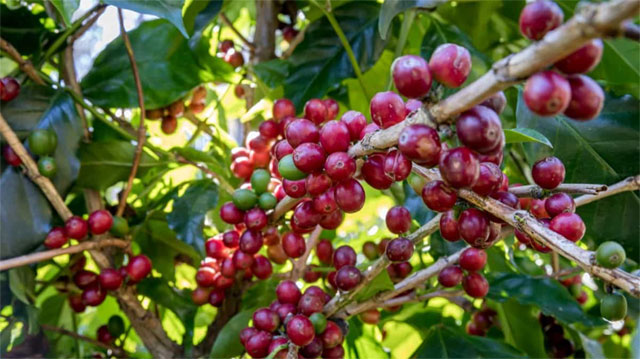Daijiworld Media Network – Puttur
Puttur, Aug 14: Farmers in Dakshina Kannada (DK), who have traditionally relied on areca nut cultivation, are now showing a growing interest in coffee farming. With questions looming over alternatives in case of a downturn in the areca industry, the district has already seen the planting of over one lakh coffee saplings — a development that is drawing attention.
Although areca nut remains the primary crop for local farmers, they have always grown secondary crops such as coconut, banana, pepper, cocoa, nutmeg, and cardamom. Except for pepper, most of these have faced various challenges, prompting cultivators to explore coffee farming more seriously.

Karnataka ranks first in coffee production in India, with Kodagu district leading the output. As far back as the 1970s, local farmers with ties to Kodagu had brought coffee plants from there and experimented with cultivation. However, large-scale farming never took off — until now.
Cocoa, once a popular intercrop, has seen fluctuating prices along with crop diseases and damage caused by wild animals. Coconut prices also fluctuate, and harvesting is hampered by a shortage of labour. Compared to other secondary crops, coffee cultivation is easier and requires fewer workers.
Recently, agricultural experts visiting various parts of the district recommended coffee cultivation, noting that the soil and climate here are well-suited for the crop. With rising labour wages and a shortage of workers for areca cultivation, farmers believe coffee — with its domestic and international market demand — offers a viable alternative.
With global demand for Karnataka coffee high, the current production is insufficient to meet export growth. The government, under its Integrated Coffee Development Project, aims to expand cultivation into non-traditional areas to boost national output. This has spurred interest in Dakshina Kannada.
Coffee farming offers several advantages for growers. It requires low dependence on hired labour and, unlike areca cultivation, does not involve year-round farm work. Additionally, when coffee beans are properly processed, they can be stored for several years, allowing farmers to sell them when market prices are more favourable.
India aims to increase coffee production from 4 lac metric tonnes to 7 lakh metric tonnes. If coffee is cultivated nationwide, experts say India could surpass Brazil as the world’s top producer. The Coffee Board has confirmed that Dakshina Kannada’s soil and climate are ideal for the crop.